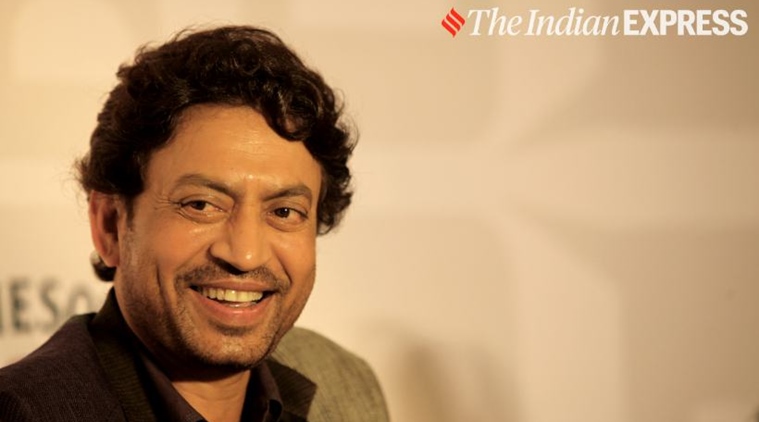by PRATAP BHANU MEHTA

The death of an incandescent artiste like Irrfan, at an age much too young for our era, is a tragic loss. PHOTO/Ravi Kanojia/The Indian Express
But what is the loss we mourn, especially in the case of a brilliant genius like Irrfan, who attained the pinnacle of what art could achieve? He leaves a void in this world. In part, the sense of loss that accompanies every artiste is the sense of their irreplaceability.
Death has many faces. But it has only one truth. It represents an irrevocable loss of value. We are told in most philosophical and religious texts about its inevitability, its certainty, its place in an order where all things are transitory. The Gita enjoins us not to grieve for what is inevitable. But this is just a metaphysical fact, and, like many metaphysical facts, does not capture the truth. The truth is that even in the Mahabharata no one quite believes the Gita’s injunctions. Not a single character manages to absolve themselves of the pain of loss: The entire drama is propelled by loss and grief, not by the cold comfort of Krishna’s metaphysics. It may not be rational to fight the inevitable. But that is not an argument that death is not loss.
Philosophers have debated to death what kind of loss death represents. And for whom. The person dying or those left behind? A whole tradition, from Socrates to Montaigne, is devoted to preparing us for the good death. For Montaigne, “premeditation of death is a premeditation of freedom”: Somehow knowing how to die liberates us from subjection and constraint. But even the composed Montaigne, who thought contemplating death made life more vivid and meaningful, could not easily reconcile to the death of his brilliant 32-year-old friend, the young La Boetie, author of The Discourse of Voluntary Servitude, an analysis of the hypnosis tyrants can produce in their subjects. The fact that La Boetie was only 32 when he died made the grief harder, even in an age where dying young was not rare. Coping with the prospect of someone else’s death is, in most cases, harder than contemplating your own.
There is, of course, another distinction to be made. Just as the inevitability of death is not an answer to the question of loss, the question of loss is not the same as that of grief or attachment. The question of grief, how one copes with the fact of loss, is a different question altogether, and perhaps the most deeply subjective one. Different people react to the same loss differently. Which is why the answer to the question of grief cannot be a philosophical or theological one. It has be about knowing the person grieving. In this sense, most of our sermons at death are beside the point. They can, at most, affirm certain public truths; they cannot address the pain of loss.
The death of an incandescent artiste like Irrfan, at an age much too young for our era, is a tragic loss. The philosopher Thomas Nagel, in Mortal Questions, asked why the loss of the young seems more tragic than the loss of the old: Keats’s death at 24 seems more tragic than Tolstoy’s at 80. In part, this has to do with the sense of unrealised possibilities. Keats was deprived of years to live that come before Death becomes inevitable. But Nagel had warned, rightly, that this does not mean Tolstoy’s death was not also an insignificant loss. But the sense of a death being premature adds to both the loss involved and the possible grief associated with it.
The Indian Express for more
